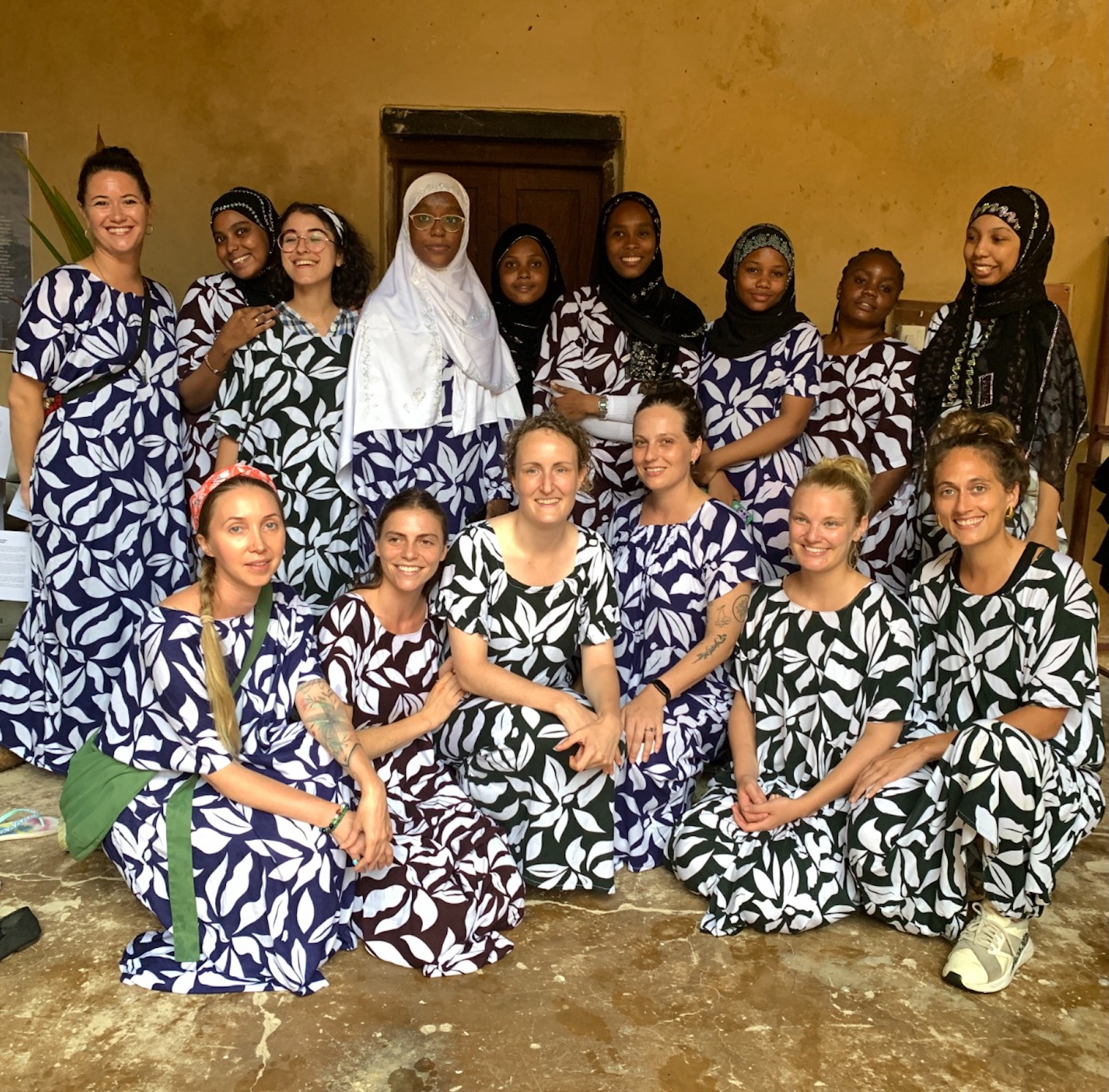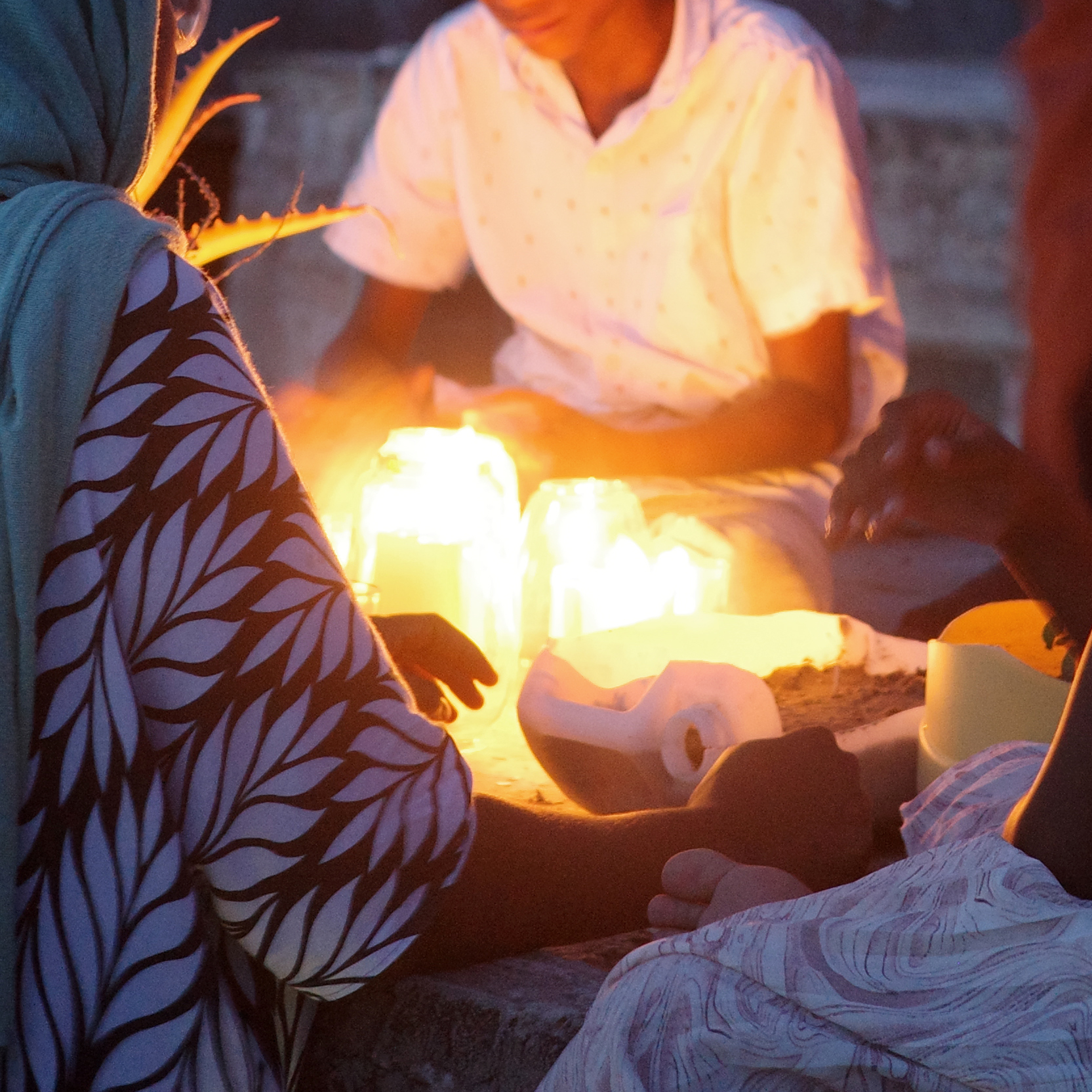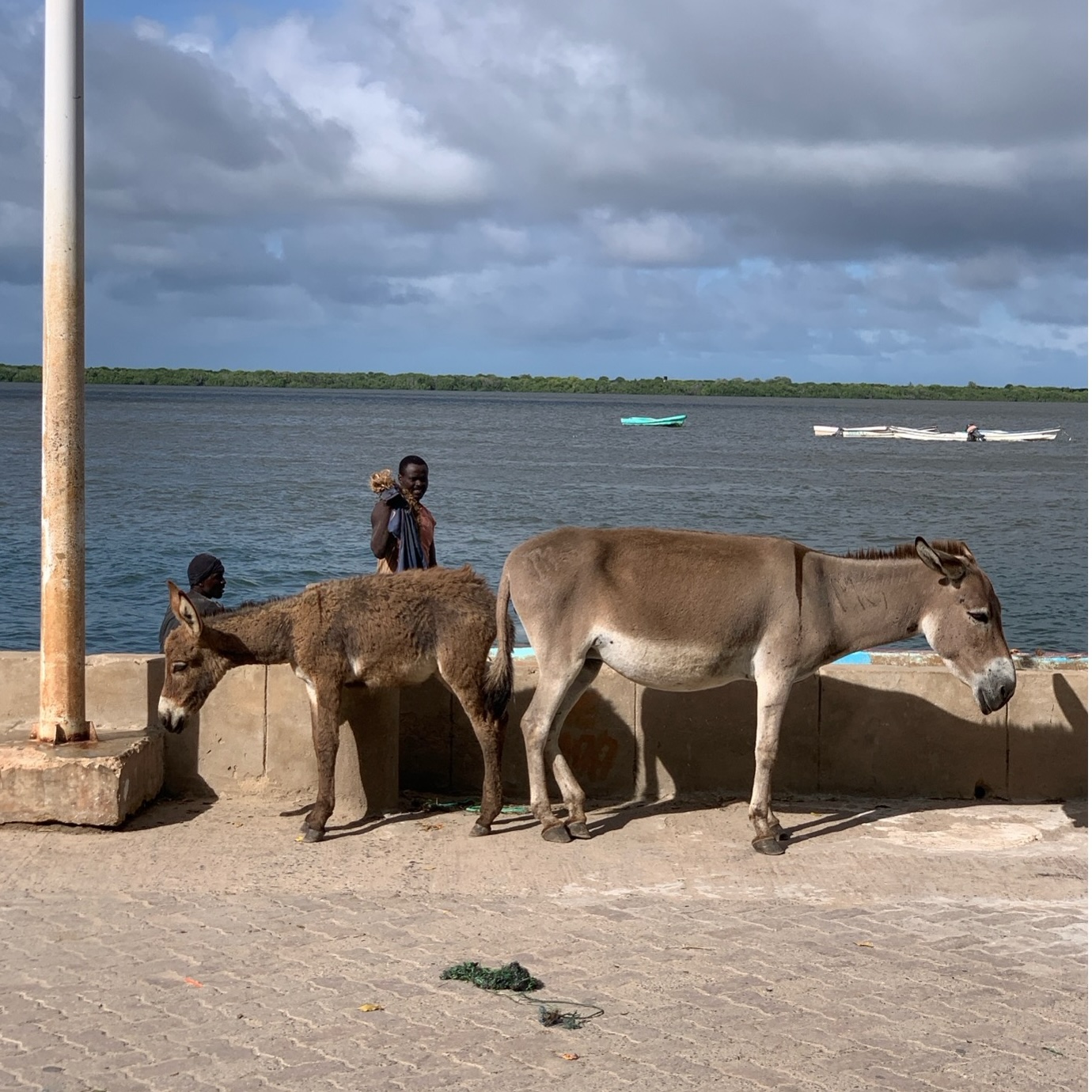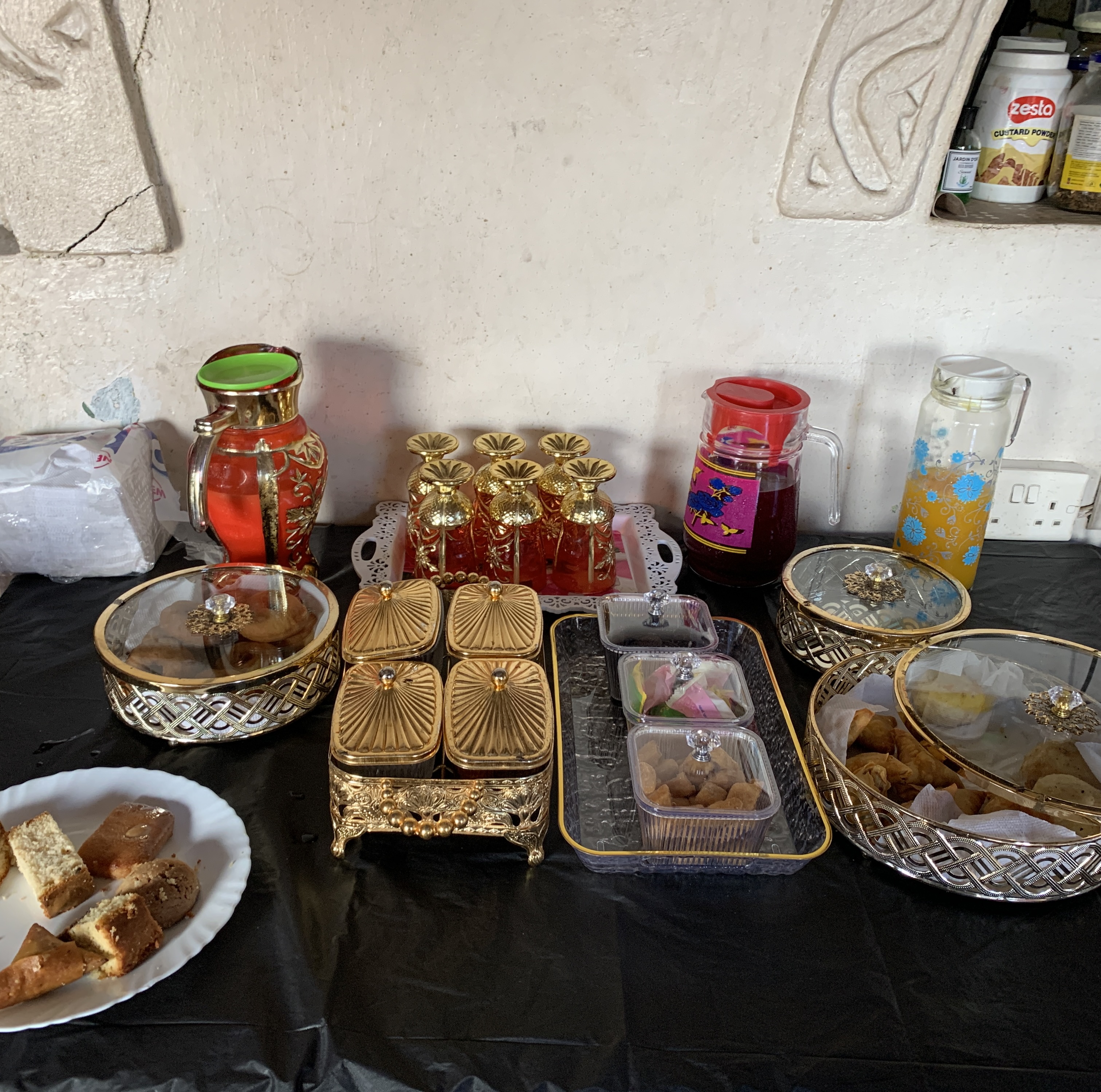Partnerships
Arriving in Lamu, partnership described the institutional setting of the 2025 research program between the Lamu Youth Alliance (LYA) and the University of Basel. However, the word partnership says nothing about the internal heterogeneity of each partner. In reality, many of our local partners were not previously affiliated with the LYA, while the students from UniBasel were neither all Swiss, nor all from an urban studies disciplinary background. While there were age gaps of over ten years, what united us was that we all identify as women. We started forming partnerships based on each of us as individuals, and not necessarily representative of our institution's interests or disciplines.
As a partnership “across geographies,” often framed as Global North–Global South, we had to navigate assumptions — especially the expectation that Northern students were experts in bringing solutions. In reality, we were all students learning together side-by-side about how to conduct research on urban environments. For most of us, this was our first fieldwork experience. Beyond producing a piece of research for the institutional stakeholders, the partnership was enriched with different forms of learning such as inter-cultural awareness, anthropological methods, and narrative practice.
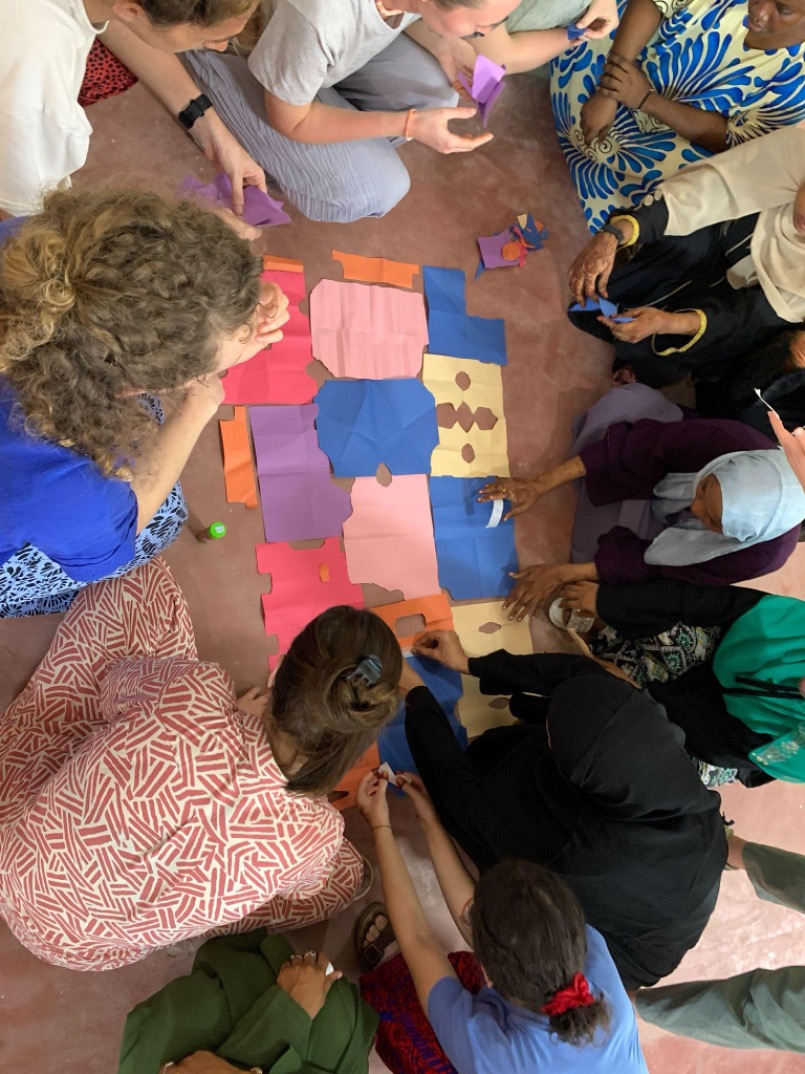
While UniBasel and the LYA have had a formal contract, we as individuals created our own partnership principles, which defined our responsibilities to each other. One of these moments of creation was the collective making of a “principles collage” in the form of a Kanga – a traditional, rectangular piece of fabric.
While crafting the Kanga, we were also shaping our partnerships—trusting the process despite barely knowing each other, gaining insight into each other’s creative thinking, and producing a shared artefact within the first week.
While crafting the Kanga, we were also shaping our partnerships—trusting the process despite barely knowing each other, gaining insight into each other’s creative thinking, and producing a shared artefact within the first week.
Collective Kanga: “build trust, build visions, appreciate difference, be patient with yourself and others, practice tolerance, process emotions, make decisions transparently, expand horizons, trust the process, celebrate togetherness, count on honesty.”
Getting to know each other through speed-dating prompts such as our views and values on family, gender, religion and honesty.
Another opportunity for building partnerships was Juice Night, a weekly gathering where the UniBasel women exchanged experiences, challenges, and highs and lows while drinking fresh juice in a café on the seafront. These events provided an opportunity for the UniBasel students to form partnerships and bond. Similarly to the UniBasel team, the LYA students ran their own Juice Night on a different day, giving them the same opportunity to get to know each other and share their experiences. Initially, interactions were tentative and sometimes clumsy, shaped by cultural differences, but mainly by mutual curiosity. Over time, trust developed and working relationships evolved into friendships.
![]()
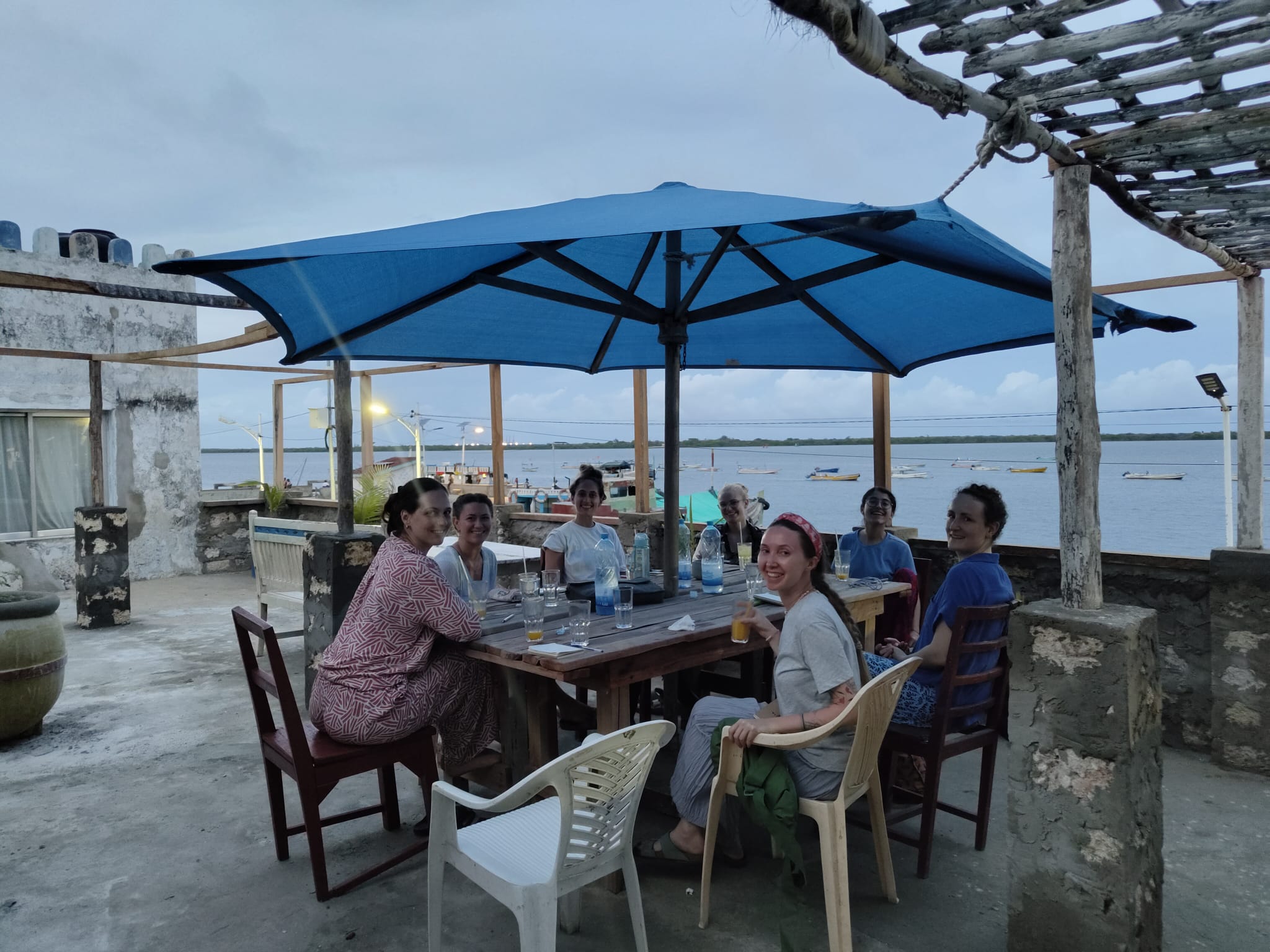
Juice Night!
Research topics were shaped more by personal connections than institutional agendas. Although LYA suggested broad themes like land and heritage, our groups found their own angles. Early discussions helped us understand each other’s goals and intentions, shaped by our diverse backgrounds and the impressions formed during our first week in the city.
Our interests ranged from women in business and religion to infrastructure, heritage, and public participation. Weekly check-ins, sometimes guided by our instructor, helped us stay aligned and ensure everyone’s desired learning outcomes were being met.
